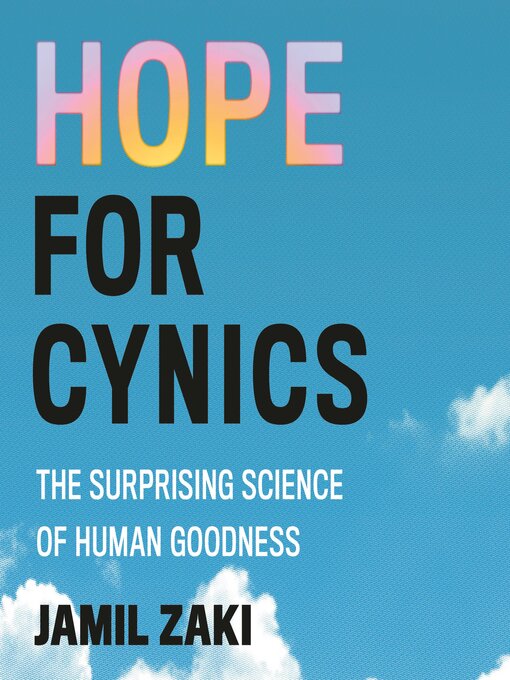Cynicism is making us sick, but Stanford Psychologist Dr. Jamil Zaki has the cure—a "ray of light for dark days" (Adam Grant, #1 New York Times bestselling author).
In 1972, half of Americans agreed that most people can be trusted; by 2018, only a third did. Different generations, genders, religions, and political parties all think human virtue is evaporating. Cynicism is an understandable response to a world full of injustice and inequality. But in many cases, it is misplaced. Dozens of studies find that people fail to realize how kind, generous, and open-minded others really are. Cynical thinking deepens social problems: when we expect the worst in people, we often bring it out of them.
We don't have to remain stuck in this cynicism trap. Through science and storytelling, Jamil Zaki imparts the secret for beating back cynicism: hopeful skepticism—thinking critically about people and our problems, while honoring and encouraging our strengths. Far from being naïve, hopeful skepticism is a precise way of understanding others that can rebalance our view of human nature and help us build the world we truly want.
Amazon Editors' Pick for Best Nonfiction Books of 2024
- No Wait
- What's new?
- Popular titles
- Read-Alongs & Picture Books
- Starting to Read
- Favorite Chapter Book Characters
- See all ebooks collections

